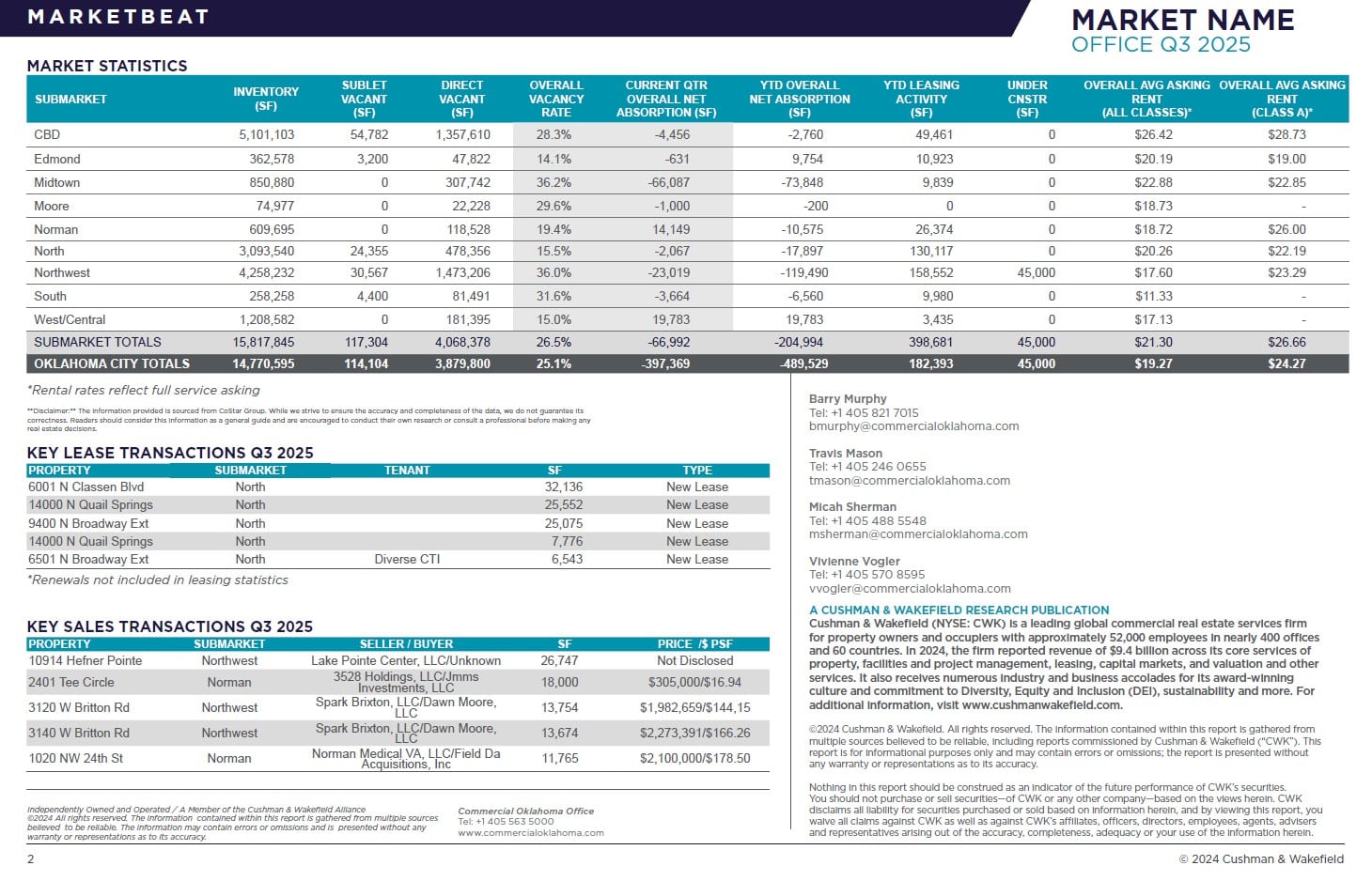ECONOMY:
Oklahoma City’s economy remains strong and steadily growing, supported by a diverse
mix of industries. While energy and the private sector continue to serve as key pillars, the
metro is experiencing rapid expansion in aerospace, technology, and manufacturing, driven
by major investments from companies like Boeing, Skydweller Aero, and Costco. A probusiness
environment, skilled labor force, and competitive state incentives have helped
attract new employers and fuel corporate growth, keeping unemployment low at 3.1%—well
below the national average—and driving job growth that consistently outpaces the U.S.
rate. The city is home to major companies such as Devon Energy, Continental Resources,
Paycom, and Love’s Travel Stops, reflecting a growing presence across energy, finance, and
retail sectors. Population growth has further bolstered the economy, with the metro area
expanding by 18% since 2010—well ahead of Tulsa’s 11%—led by gains in Oklahoma and
Canadian Counties, reinforcing the city’s appeal to both businesses and residents.
DEMAND:
Compared to peer cities of similar size, Oklahoma City’s office market stands out for its
resilience and consistent tenant interest. This strength is largely driven by business-friendly
policies, cost-effective lease rates, and a measured pace of new development. Office
properties in the metro tend to lease more quickly than the national norm, averaging
around 12 months on the market versus over 14 months nationwide. Average asking
rents remain highly competitive at $20.18 per square foot—well below the U.S. average
of $35.93—making the market particularly attractive. Key industries driving this demand
include government, finance, tech, insurance, and energy, with much of the activity
centered in the North and Northwest corridors, where updated buildings and access to
talent are top draws. With its affordability, steady economic base, and lack of overbuilding,
Oklahoma City continues to offer one of the most stable office environments in the
country.
OUTLOOK:
Oklahoma City’s office market is evolving in response to shifting tenant preferences, with
demand increasingly focused on smaller, high-quality spaces—particularly in the North
and Northwest submarkets, which account for roughly 40% of leasing activity due to
their desirable locations. To stay competitive, landlords are enhancing their offerings by
increasing the proportion of building common areas, allowing for more shared amenities
that appeal to today’s tenants. Although vacancy rates remain elevated, steady leasing
activity is being supported by tenant-favorable pricing and more generous tenant
improvement (TI) packages. On the investment side, softening interest rates are narrowing
the gap between buyer and seller expectations, leading to more balanced negotiations
and improved deal flow. Redevelopment opportunities continue to attract investors, with
office-to-multifamily conversions and owner-occupied acquisitions becoming increasingly
common across the metro. As interest rates are projected to continue declining in the
coming months, investment activity is expected to pick up further. Looking ahead, vacancy
is likely to decrease as underutilized office space is repurposed, setting the stage for a
more stable and dynamic market environment.

